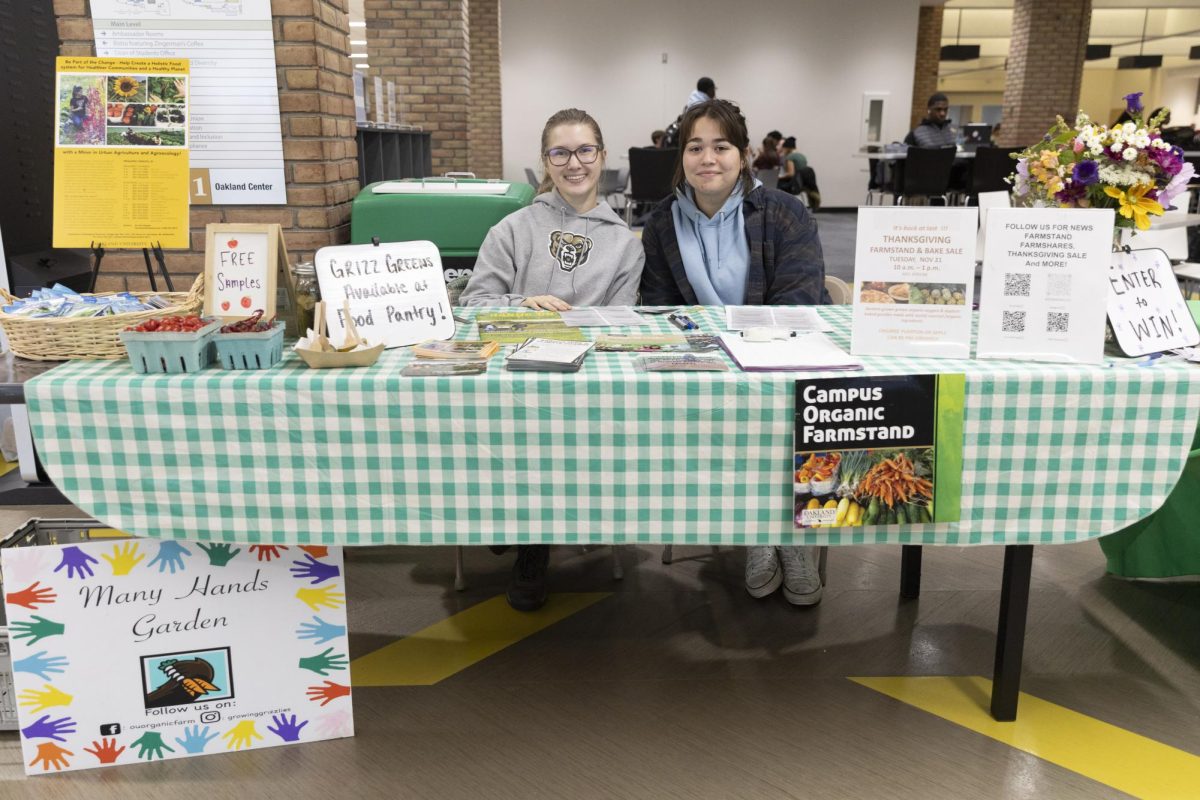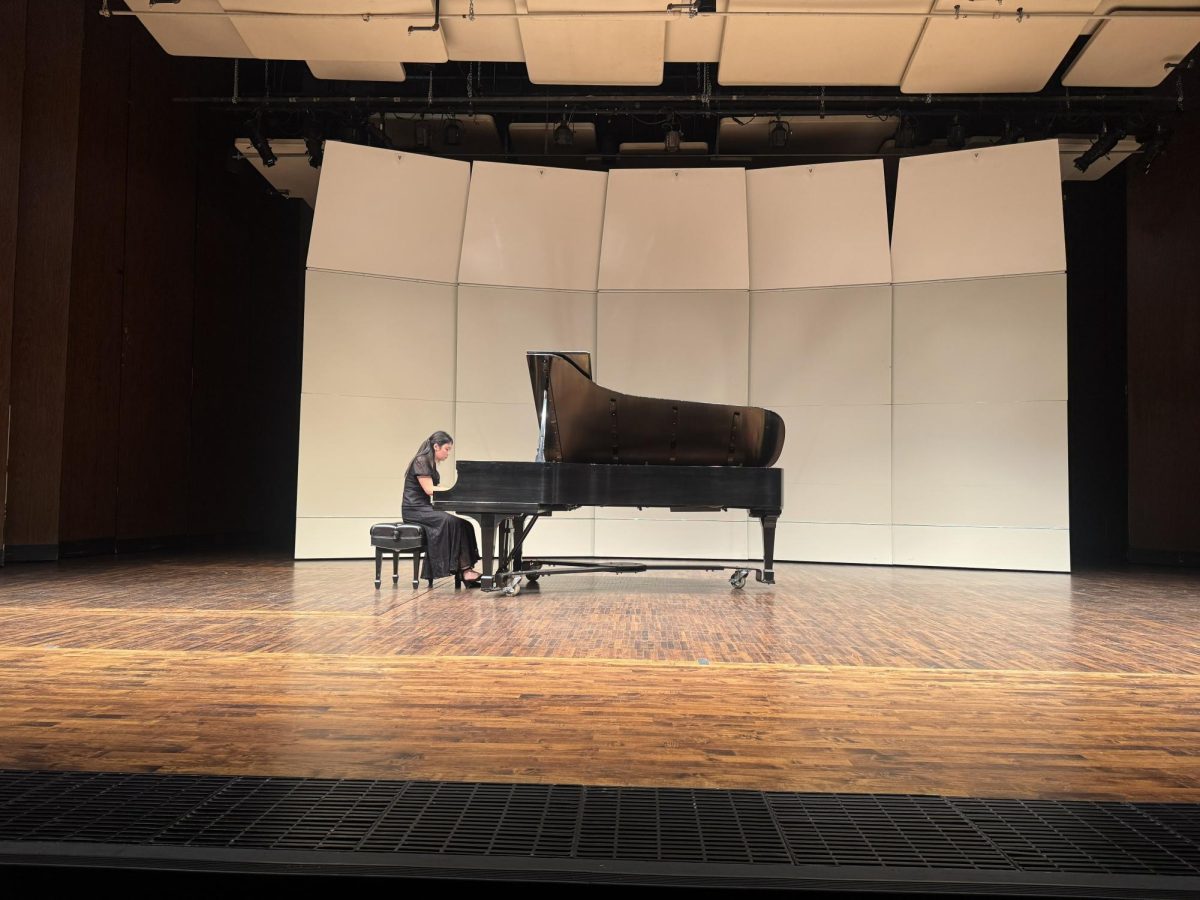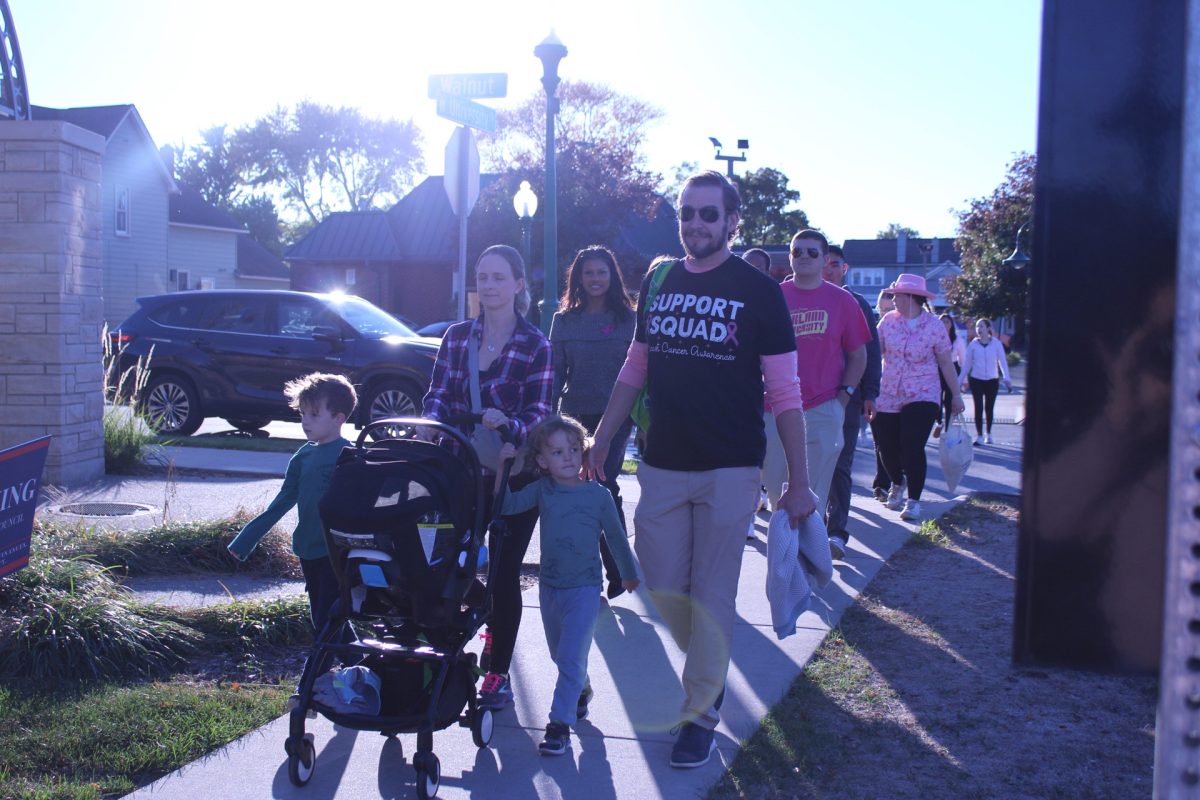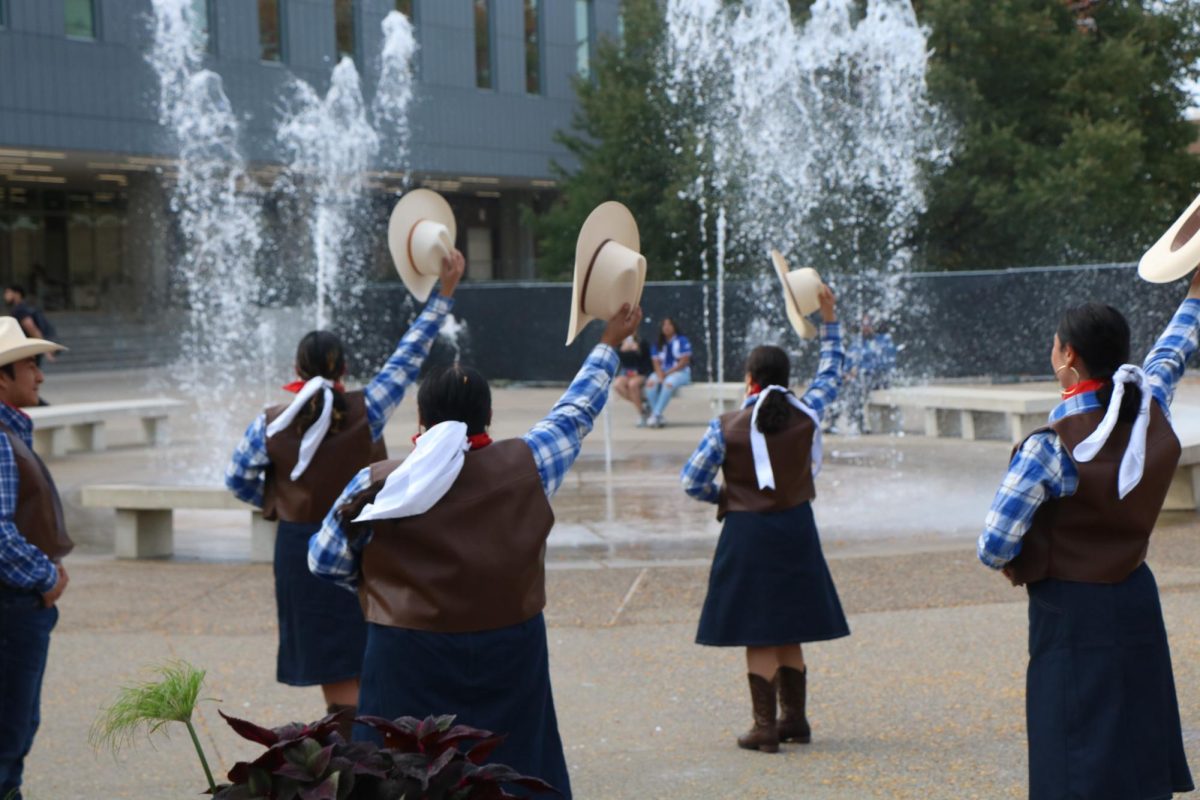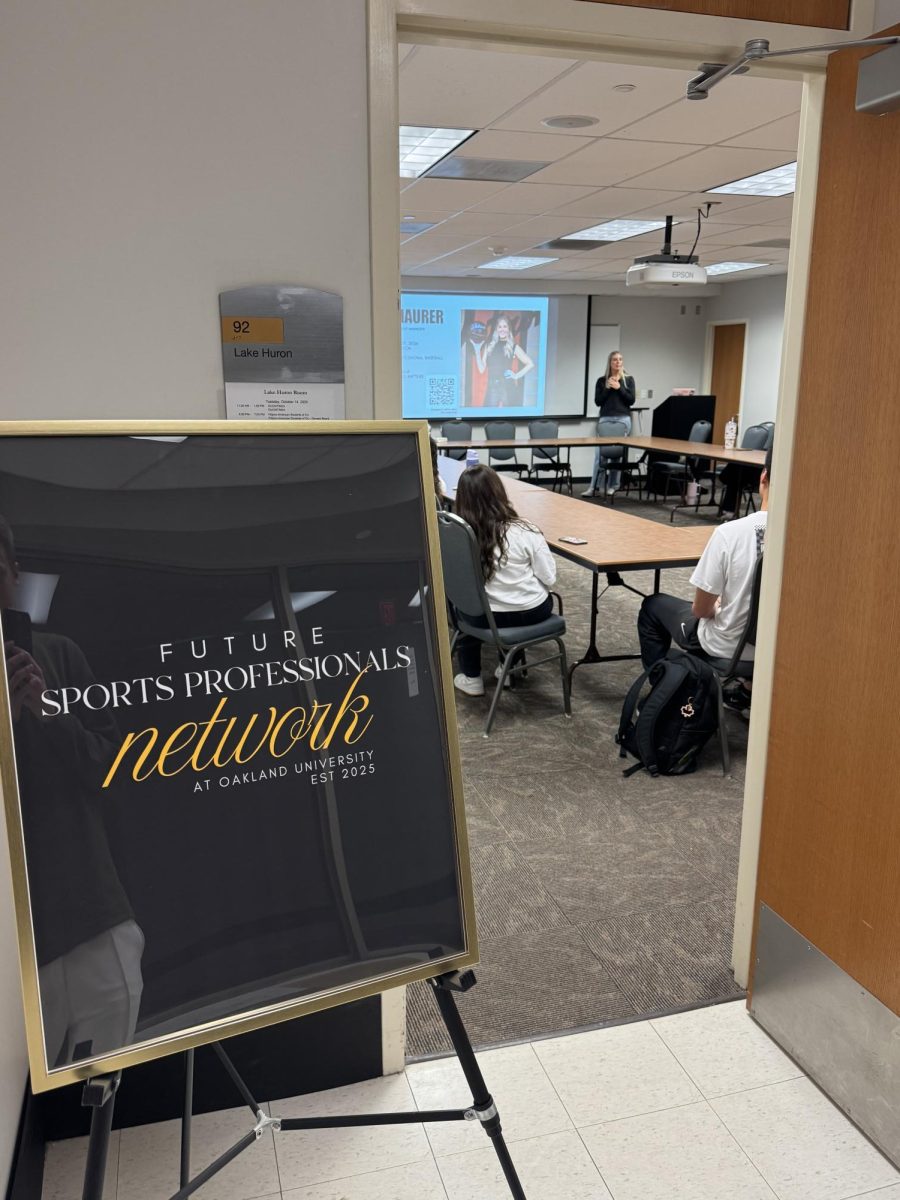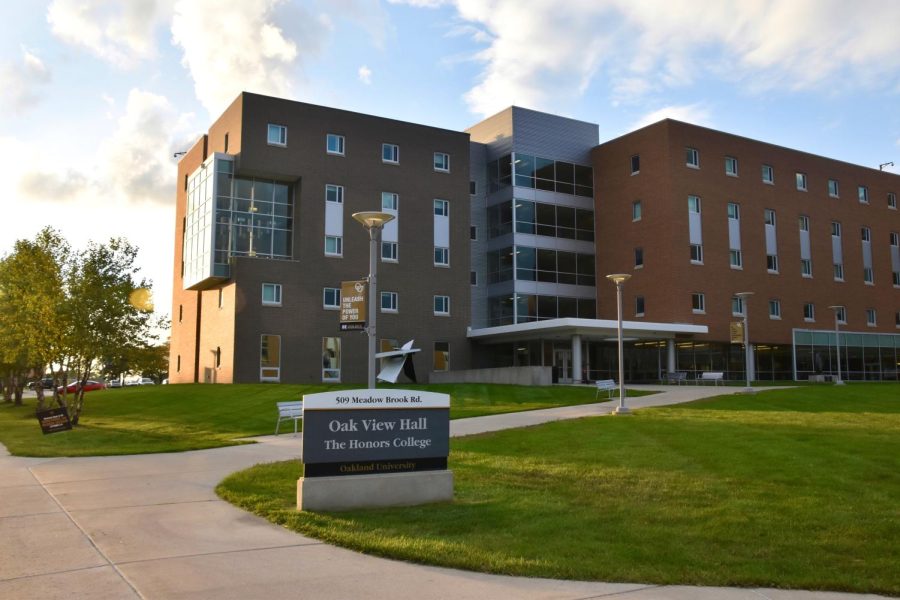On Oct. 30, various student organizations and researchers participated in Oakland University’s first annual sustainability showcase, hosted by the Oakland University Student Congress (OUSC). The event aimed to educate OU community members about sustainability initiatives on campus through discussions led by students and faculty.
Katya Eskander, OUSC’s director of sustainability, designed the showcase to provide student organizations with the opportunity to disseminate information about the intersectionality of their missions.
“I came up with the idea [for the showcase] because as a student org president myself [of the Pollinator Conservation Organization], I recognize that not everyone will join my group, but feel that we have a lot of really important and interesting information to share,” Eskander said.
The Campus Student Organic Farm (CSOF) was the first group to set up their booth for the event. With fresh produce and flowers from the farm, the student farmers set out free samples and informational pamphlets for attendees to grab.
Hanna Letasz, a student worker at the farm, shared her perspective on how the CSOF contributes to campus sustainability efforts.
“We focus on education and food on the farm, hosting classes throughout the year to educate students about organic farming,” Letasz said. “After our day of selling at our pop-up farmstand in the fall, we donate extra produce to the Golden Grizzlies Food Pantry through the GrizzGreens program.”
Sustaining Our Planet Earth (SOPE) hosted a booth at the event to promote its mission of making OU’s campus as green as possible. Members of SOPE pursue this mission by planning educational events for students and managing recycled items in residential buildings.
Christina Eisenman, a student representative for SOPE, pointed out the student employment opportunities SOPE provides.
“We employ students on campus as SOPE Ambassadors, who hold weekly office hours and participate in sustainability initiatives on campus,” Eisenman said. “Applications open in February. Interested students can reach out to us via email: [email protected].”
The Native American Student Organization of OU attended the event to educate attendees about the Native American Heritage Site on campus.
“Many students do not know where the Native American Heritage site is located,” Sada Reed, a member of the Native American Student Organization, said. “The site is behind Hillcrest Hall, between parking lots P-37 and P-35.”
Reed explained her organization promotes food and land sustainability by hosting educational events and planting native species at the heritage site.
Campus Alliance for Sustainability and the Environment (CASE-OU) is an organization that promotes sustainability by uplifting the voices of students, staff, faculty and community members.
“We [CASE-OU] host monthly meetings, take nature walks at OU’s biological preserve, advocate for sustainability on campus and collaborate with locals on sustainability events,” Sarah Griffith, a student member of CASE-OU, said.
Professor Laura Landolt added that CASE-OU allows faculty members to collaborate and discern the best practices for teaching environmental issues.
Alongside organizations strictly focusing their efforts on improving sustainability on campus, many groups that, at first glance, seemed unrelated to sustainability also held tables at the event.
These organizations, which included Grizzlies for Choice, the Iraqi Club and the Vintage and Secondhand Fashion Club, educated students on the diversity of sustainability, discussing the impacts environmentally-conscious behavior has on various aspects of our lives.
Some students opted to present their independent research at the showcase, with projects ranging from “The Ethics of Fast Fashion” to “The Intersection of Mental Health and Sustainability.”
Eskander was pleased with the high volume of participation at the event.
“Walking around, I saw plenty of students stopping to read posters and many meaningful discussions being had, so I believe a significant number of students walked away having learned something new,” Eskander said. “Administration also stopped by, so it was great to show them how important sustainability is to students.”
Eskander plans to continue promoting sustainability initiatives far beyond Sustainability Month.
“As the OUSC Director of Sustainability, I plan to continue my unfinished initiatives such as stopping the expansion of Adams Road, expanding recycling beyond the OC and clarifying/promoting the purpose of the Trash to Cash program,” Eskander said.
In April, Eskander looks forward to hosting a Swap Shop/Repair Café, wherein attendees can swap items with others and learn how to fix any broken items they may have.
For more information about OUSC’s upcoming events, refer to their Instagram page, @ouscofficial. For more information about OUSC’s sustainability initiatives, Eskander can be reached directly through email: [email protected].



